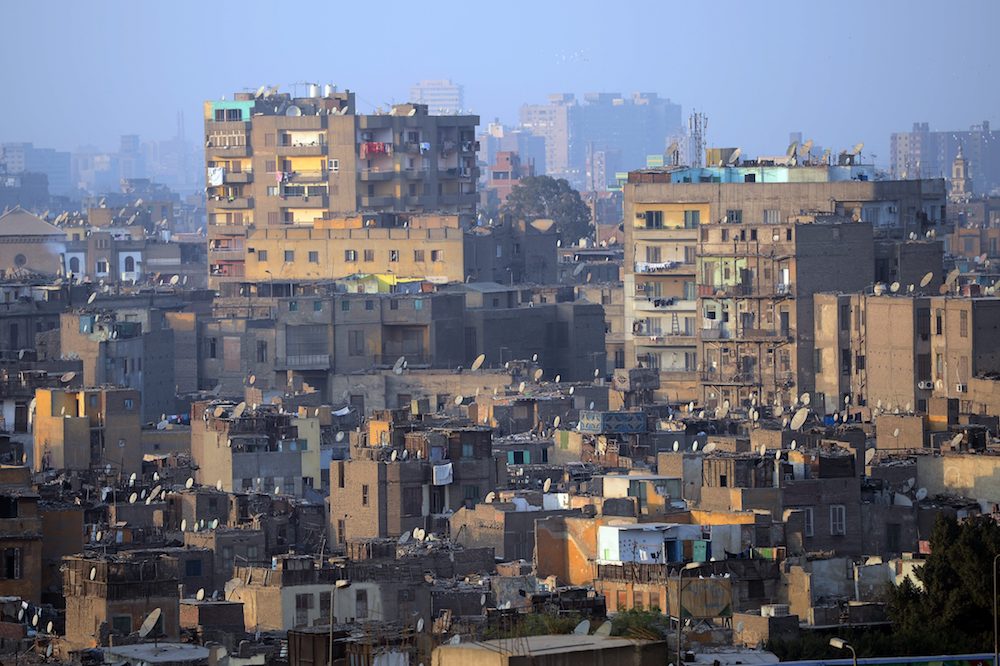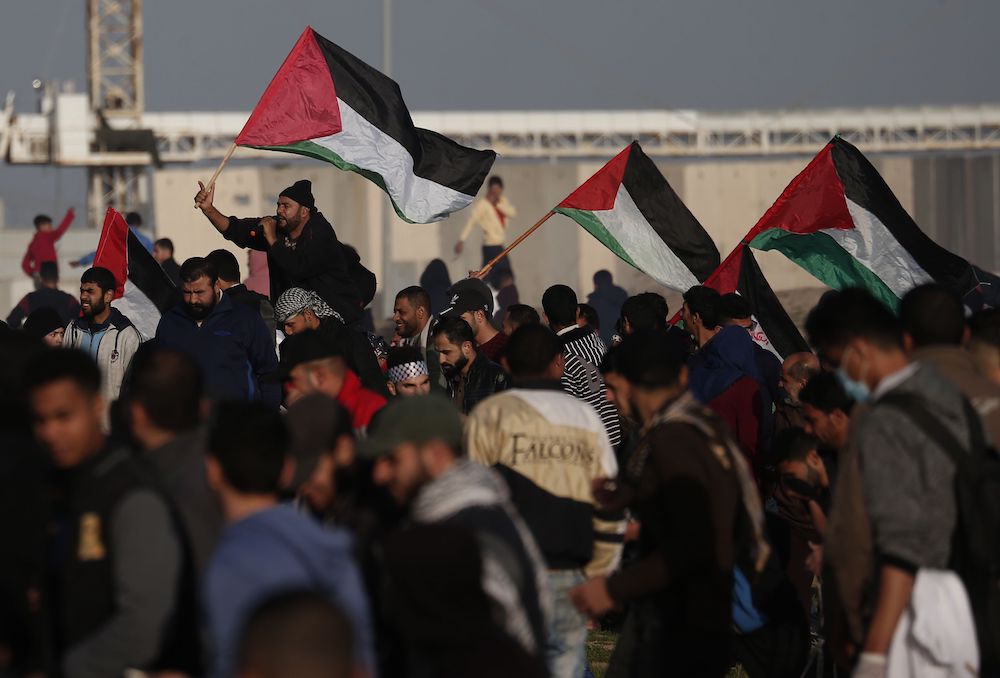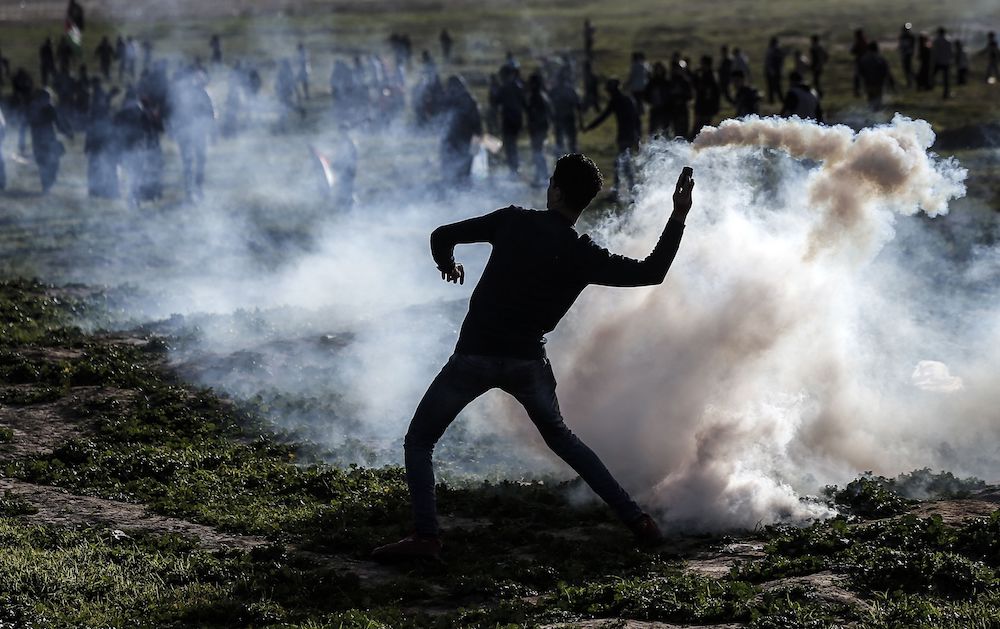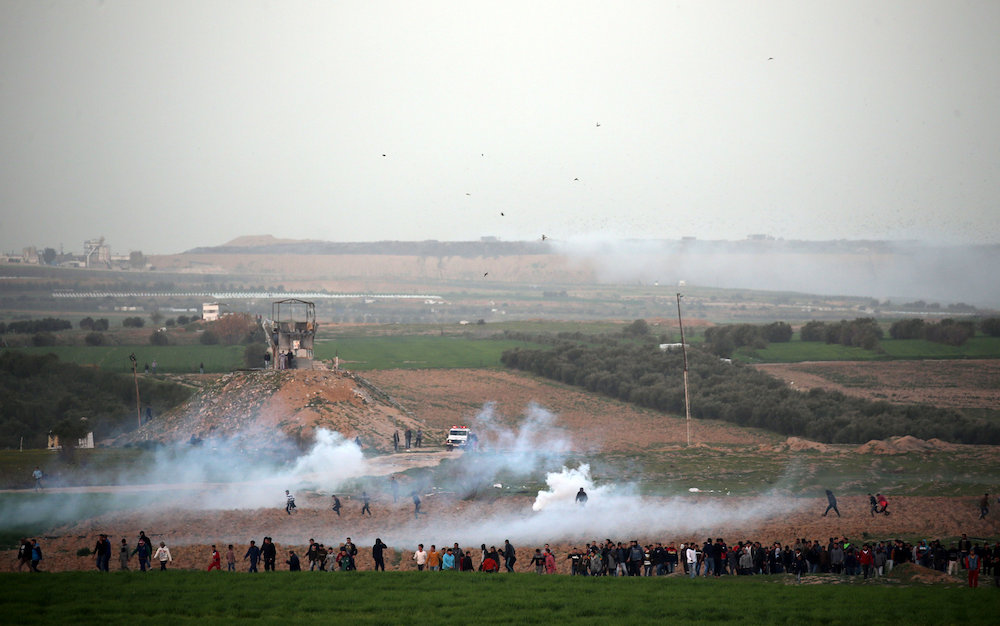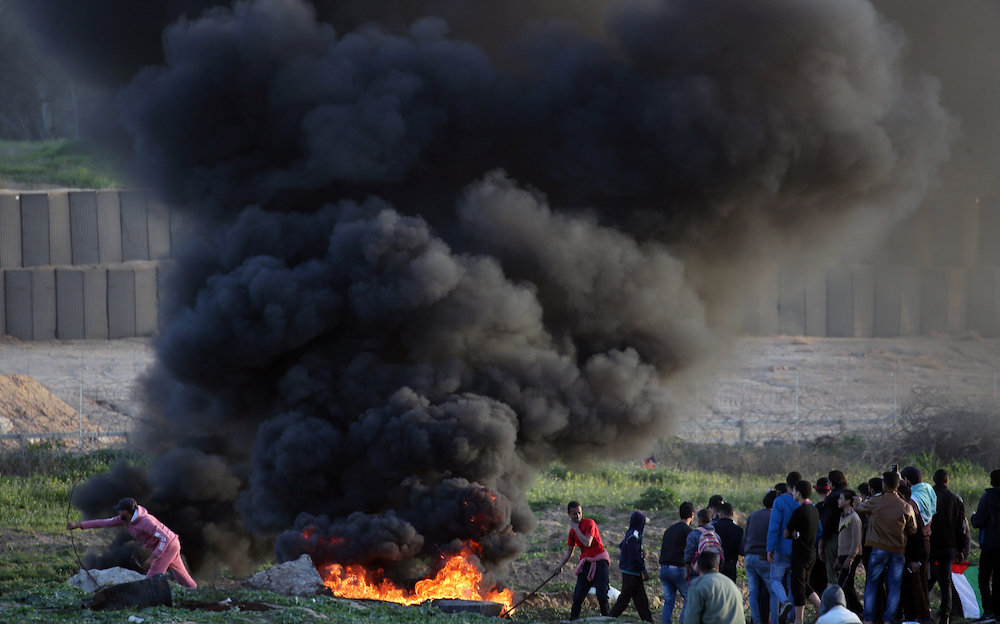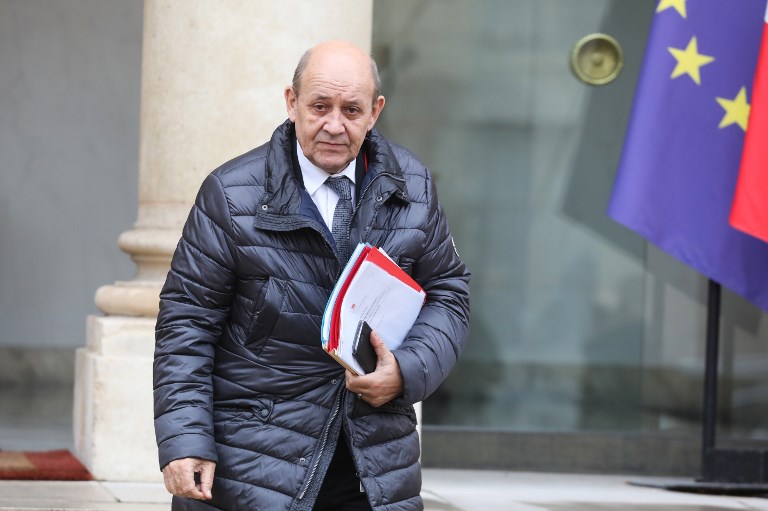Families flee bombardment and hunger in last Syria Daesh pocket
As US-backed forces advanced, 22-year-old Dima Qatran buried one of her twin babies, then picked up the other and fled the Daesh group’s crumbling pocket in eastern Syria.
Clutching her remaining 11-month-old daughter, she joined hundreds escaping the last shreds of the extremist group’s “caliphate” near the Iraqi border.
She fled through the cold desert on foot toward territory held by US-backed fighters, where she boarded a truck to take her to a camp for displaced Daesh families further north.
“I had twins,” Qatran told AFP on Friday, tears streaming down her face, at a pit stop along the way.
“I buried one, and the second is dying. She has diarrhea and keeps vomiting. I can’t bear it. My daughter died of cold and hunger.”
The US-backed Syrian Democratic Forces are fighting to expel the last Daesh fighters from a few hamlets in the eastern province of Deir Ezzor.
“We slept in the street for 11 days after my home was bombed” in Baghouz, a village on the front line, she said.
Qatran said she arrived in Baghouz with her husband’s family a year ago after fleeing the town of Albukamal to the west, which was retaken from Daesh by Russia-backed regime forces in late 2017.
The young mother said all she wanted was to be reunited with her husband who works as a cook in Turkey, and claimed to have no affiliation with Daesh.
“I’m scared of them,” she said.
Ravaged by Rashes
Near the Omar oil field, women and children — some of whom had faces ravaged by rashes — descended from the back of a dozen small trucks, caked in dust and visibly exhausted as the SDF allowed a quick break.
A mother dashed down from a vehicle, rushing her two children out of sight to relieve their bladders, while others pleaded for food and drink, saying that with the bombardment and siege, they had not eaten for days.
Infants screamed while their mothers did their best to soothe them.
For days, hundreds have been fleeing what remains of the so-called “Hajjin pocket” east of the Euphrates River, SDF officials said.
According to the Britain-based Syrian Observatory for Human Rights war monitor more than 8,000 people have fled since Monday, including around 1,000 jihadists.
Since early December, some 29,000 people have escaped the fighting, the Observatory said.
Sara Al-Sahar, 32, paced around with her baby trying in vain to pacify him.
He’s “hungry and sick,” said the mother of two.
“There’s no food over there, just hunger,” she said of areas under Daesh control.
“Nothing — not even nappies.”
Sahar also insisted she had nothing to do with Daesh, a claim that AFP could not immediately verify.
“We walked for six hours” in the desert before reaching SDF-controlled territory, she said.
Suspicion
Around 750 people reached SDF-held territory from Daesh-held territory on Friday, Mohammed Suleiman Othman, an official with the Syria Democratic Council said.
They included 600 civilians, mostly Iraqis related to Daesh fighters, he said.
But 150 men were detained on suspicion of belonging to Daesh, after screening near the frontline.
Fourteen women and their children of various nationalities including from Russia, Ukraine, Kazakhstan, and Turkey were ferried off to a special center for questioning.
Inside that center, women sat with their children in a large room. One was changing her baby, with a nappy improvised from fabric and plastic bags.
In a corner, 20-year-old Mariam from Ukraine fed her baby before she wiped her face with her hands.
“I need to rest before I can remember what happened to me,” she said, speaking in classical Arabic, reluctant to answer any questions.
Near the Omar oil field, women asked how much longer before they reach the Al-Hol camp in the northeastern province of Hasakah.
“Is it still far? We’re so tired,” one of them said.
Tayyeba, 54, said she escaped with her husband, but the SDF detained him for questioning.
“We fled as the frontlines started getting closer,” she said, wrinkles visible under her black face veil.
Umm Baraa, 20, said: “The streets are full of people who can’t find anywhere to sleep. We were running from one neighborhood to another.”
She said her husband — an Daesh fighter — died recently in an air strike.
“We were all doing so well… If the frontline hadn’t got closer, we wouldn’t have left at all,” she said of life under Daesh.
“Now we don’t know what awaits us.”

Turkey ‘will go it alone’ with Syria security zone
